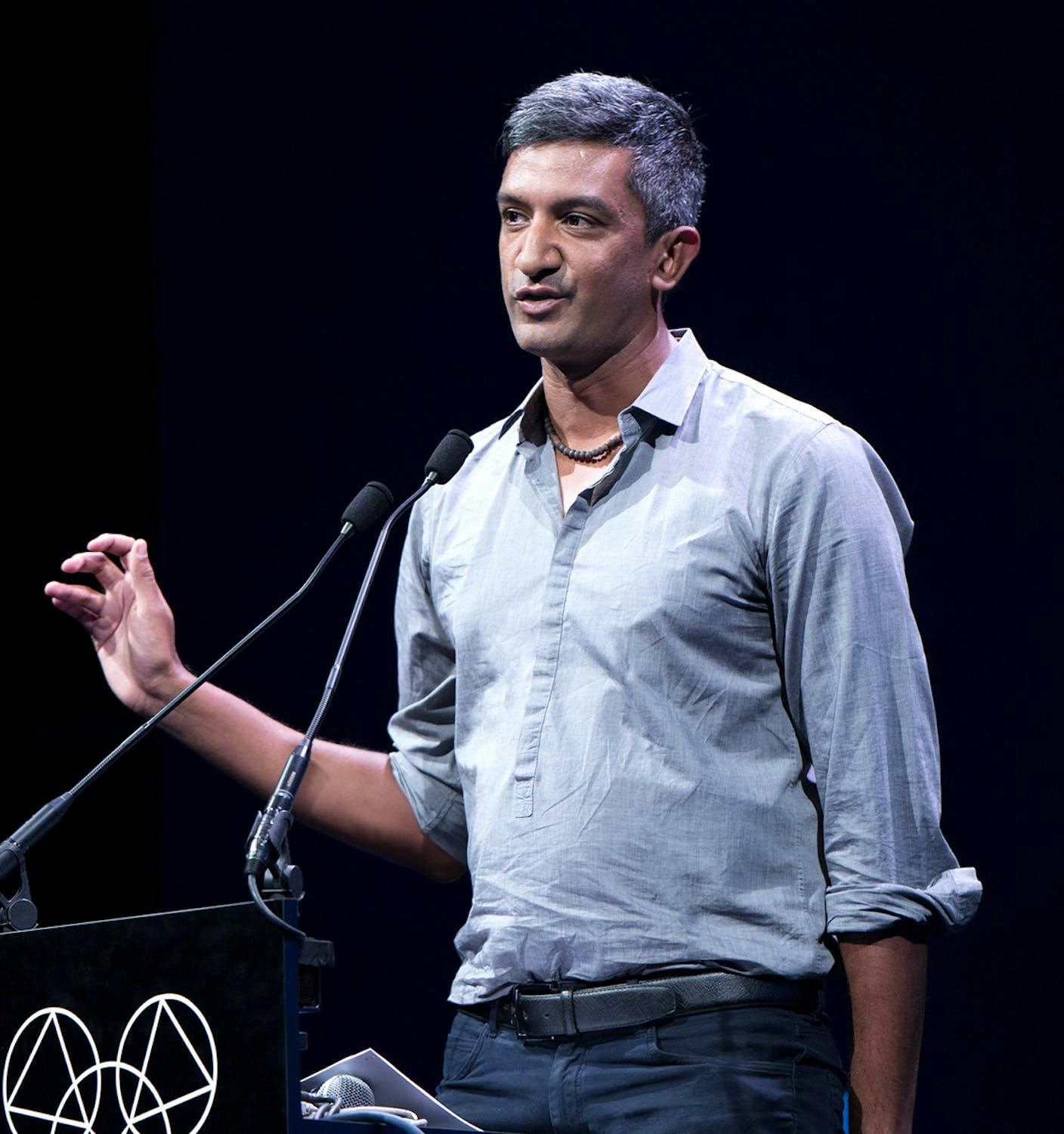Ramesh Srinivasan
Ramesh Srinivasan speaks about the intersection of technology, innovation, politics, business, and society. He is a leading voice pointing the way toward a digital world that supports democracy, economic security and business interests. He blends his skills as a leading academic, author, engineer, social scientist, storyteller, policy adviser, and thought leader to shine a light on how technology and innovation, from all quarters and countries, will make a balanced world possible, for all. His mission is to help repair the disconnect between designers and users, producers and consumers, and tech elites and the rest of us: toward a more democratic internet.
He has been a faculty member at UCLA since 2005 in the Information Studies and Design|Media Arts departments. He is the founder of the UC-wide Digital Cultures Lab which offers a unique, people-focused analysis of new technologies working across every continent and dozens of countries across the world. This lab examines the means by which new media technologies impact businesses, economics, cultures, politics, labor, and the environment through collaborations with global partners. He explores the future of algorithms, AI, automation, and cryptocurrencies with these themes in mind. He holds degrees from Stanford (B.Sc in Engineering), the MIT Media Laboratory (MSc), and Harvard (PhD)
Ramesh is the author of three books: “Whose Global Village? Rethinking How Technology Impacts Our World” (2019 – NYU Press) and “After the Internet” with Adam Fish.
His most recent book outlines how the future of the internet still hasn’t been written. In ‘Beyond the Valley’, Ramesh argues that Tech can be fairer and more democratic, while still serving business interests. If we look beyond the confines of a small slice of Northwest USA, we’ll find people from all over the world creating a new narrative by using ingenious ways to leverage limited resources to join the digital space and how they are reinventing technology to suit their situations. In the research for this book, Ramesh explored technology’s impact across nearly 70 countries – economically, politically, socially.
BEYOND THE VALLEY was named a top ten 2019 book in Tech by Forbes.
Ramesh appears frequently on NPR, The Young Turks, MSNBC, BBC, CNN and other major media networks. His articles and interviews have been published by the Washington Post, Wired, The Economist, Quartz, Financial Times, CNN, Forbes, New York Times, Los Angeles Times, among others.
In February 2021, Ramesh was cited in an opinion piece by Thomas Friedman in the New York Times. Mr. Friedman reiterated Ramesh’s suggestion that America urgently needs to enact a digital bill of rights that “sets the right balance between free speech and algorithms that make hate speech and blatantly false information from unreputable sources go viral.”
Titles and Positions
- Professor of Information Studies
- Director, UC Center For Global Digital Cultures
Education
- Doctorate, Design Studies, Harvard University, 2005
- M.S, Media Arts and Sciences (Media Laboratory), Massachusetts Institute of Technology, 2002
- B.S., Industrial Engineering with Honors, Stanford University, 1998
Teaching & Research Interests
- Technology and globalization
- New media and activism
- Design
- Ethnography
- 2017. Srinivasan, R., Whose Global Village? Rethinking How Technology Shapes Our World, NYU Press, 2017.
- 2017. Srinivasan, R. and Fish, A. After the Internet, Polity Press, forthcoming.
- 2013. Srinivasan, R. “Re-thinking the Cultural Codes of New Media: The Question Concerning Ontology”, New Media and Society 15(2): 203-223.
- 2013: Srinivasan, R. “Bridges Between Cultural and Digital Worlds in Revolutionary Egypt”, The Information Society 29(1): 49-60.
